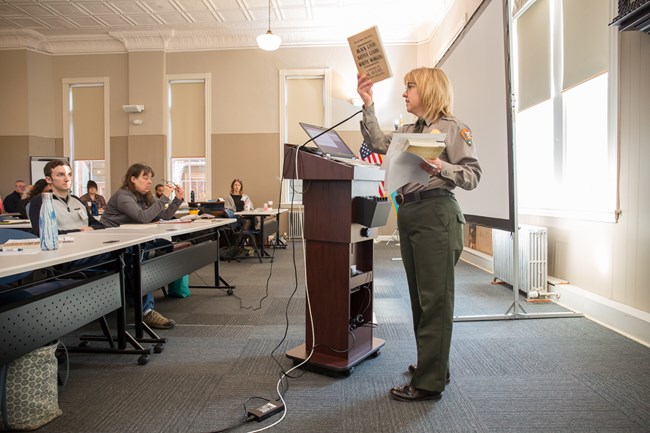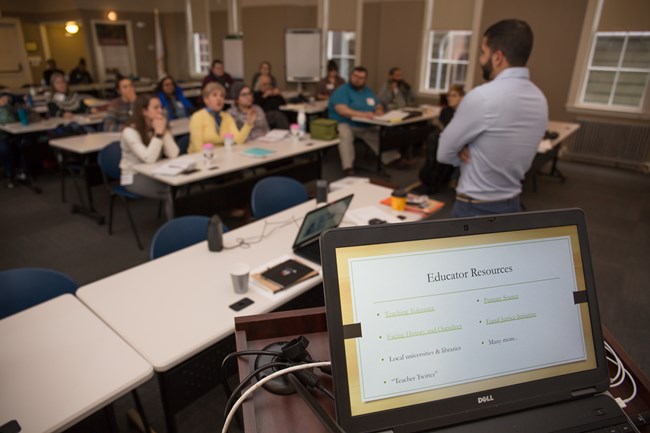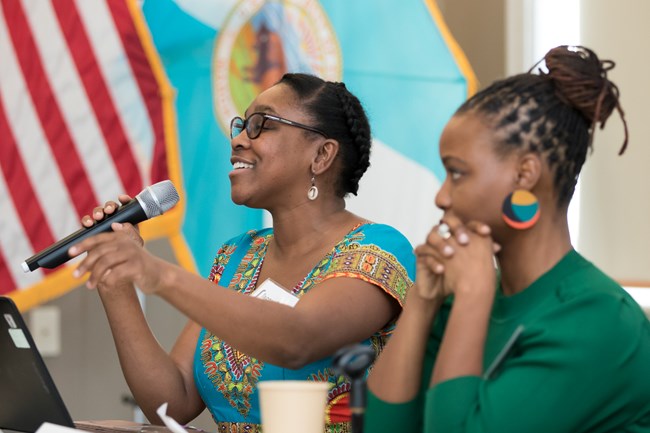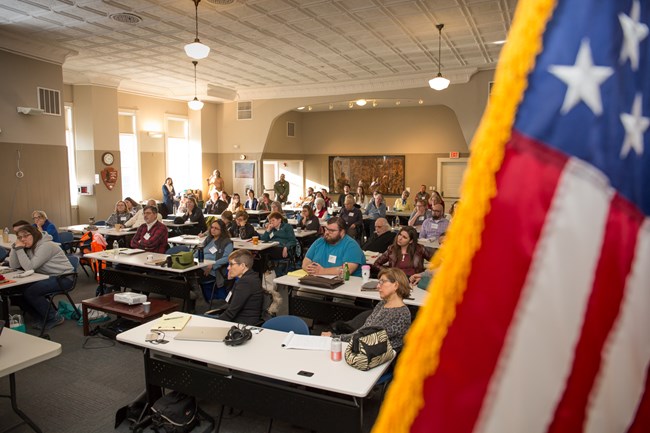News Release
|
Subscribe
|
On Saturday, February 8th, more than 50 classroom teachers, museum educators, and historic site interpreters gathered at Salem Maritime National Historic Site to explore the stories and legacies of slavery in New England. Participants came from as close as down the street, like Julie Arrison-Bishop, Director of Community Engagement at the House of Seven Gables, and as far away as New York state, including park rangers from Martin Van Buren National Historic Site.

NPS/John Hurley
But by far the furthest to travel was keynote speaker, Dr. Jared Ross Hardesty, associate professor of history at Western Washington University. Dr. Hardesty’s most recent publication, Black Lives, Native Lands, White Worlds: A History of Slavery in New England, explores the economic and cultural significance of slavery in a region some have argued is plagued by historical amnesia.
Dr. Hardesty began with an overview on the history of slavery in New England, before presenting useful online sources for conducting research into the individual lives of enslaved people. He then led the workshop through an interpretation of primary source materials – judicial records and runaway slave advertisements.
Afterwards, workshop participants chose from a series of breakout sessions aimed at exploring how the history of slavery makes its way from scholars – to teachers and interpreters – to students and the public.
Kevin Toro, Modern World & United States History teacher and Black Student Union Advisor at Arlington High School, led a session entitled, “An Authentic Approach to Hard History.” This presentation addressed some of the common concerns educators face when approaching “hard history” topics such as slavery and racism.

NPS/John Hurley
Using primary sources and landmark sites, Kevin introduced participants to an authentic pedagogy centered on promoting student engagement and insight.
Maryann Zujewski, education specialist at Salem Maritime, moderated the panel. Before introducing the speakers, she expressed her own motivation for prioritizing this work. “As a white woman, I am still and will be forever working on building my awareness and understanding on issues of slavery, race, and its legacies…Our purpose with this panel is to center the work of these community leaders; to understand how the black experience has shaped the world we all live in; and for us white people to consider ways we can learn to fight against privilege power, and oppression.”

NPS/John Hurley
In 2019 and 2020, the National Park Service is commemorating 400 years of African American experience and history. At Salem Maritime, park rangers are committed to recognizing and sharing stories that contribute to the culture of our nation – including those from voices that have been marginalized in the past. The title of this workshop came from people asking, "Why does this history matter? Can't we just focus on the positive and ignore the bad?"

NPS/John Hurley
Classroom teachers had the opportunity to earn professional development points (PDPs) through park partner Essex National Heritage Area. Salem State University students from the public history department participated as volunteers. A big thanks to all who attended and made this workshop possible!
Last updated: February 18, 2020
